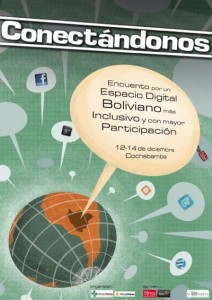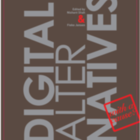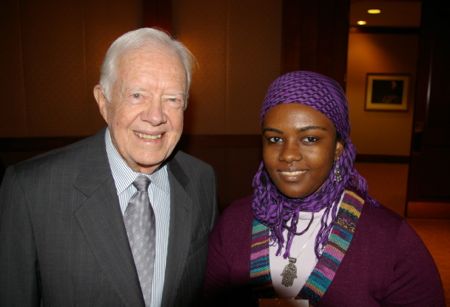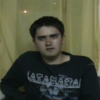The year started out with news from the Middle East and North Africa (MENA) region about citizen uprisings that would alter the course of history throughout this part of the world. The turn of events in Egypt, in particular, hit close to home with Rising Voices because of our close connection to our three grantee projects in Cairo and in Upper Egypt. Obviously some of the projects were placed on hold during this uncertain time, but many of the project leaders and participants took to citizen media as a way to express their thoughts and feelings about the revolution. In addition, the day before the infamous internet shut-down by the government, we also heard from one of the project leaders via Skype, who spoke about her participation in the citizen action.
Podcast with Nesma by risingvoices
Digital Natives with a Cause?
In early February, Rising Voices partnered with HIVOS and the Centre for Internet and Society to organize the Latin America and the Caribbean regional workshop of the Digital Natives with a Cause? project. The workshop held on February 8-10, 2011 in Santiago, Chile invited 23 young people actively using technology in their daily lives for social action and creative expression to share their experiences with others from their region.
Fifteen countries from the region were represented at the workshop, which was the third in a series of regional events that took also place in Tapei and Johannesburg in 2010. The information compiled from all three of the workshops helped form the basis of the final book project “Digital AlterNatives” that was released in September 2011. This book features essays from the workshop participants, facilitators, and others who are working in this space. You can download the entire book here.Welcoming Newest Grantees
Our first global-wide open call for microgrant proposals in nearly two years yielded an unprecedented level of interest. Rising Voices received more than 750 applications from more than 90 countries from individuals and organizations interested in implementing a citizen media outreach project in their local community. Reading through every proposal each filled with creative ideas, the selection committee recognized the ongoing need in these communities and it was a difficult, yet thorough process to select five projects.
In early March, we announced the five selected projects:
- Ségou Villages Conection (Mali)
- Blind Dates (Greece)
- Friends of Januária (Brazil)
- Transparent Chennai (India)
- Youth Voices of Bandim and Enterramento (Guinea-Bissau)
We plan to launch the open call for the next round of microgrant proposals in early 2012.
Blogging Positively
Interest in the Blogging Positively working group continued in 2011 with members of the Global Voices Lingua community that helped with the translation of the e-guide into Swahili and Russian. In addition, several blog posts highlighting the use of citizen media in discussing HIV/AIDS, as well as interviews with bloggers were featured on Rising Voices in 2011. We closed out the year with the commemoration of World AIDS Day in December 1 by promoting the use of the hashtag #BlogPos (blogging positively).
Partnerships
Over the course of 2011, Rising Voices has been reaching out to organizations and individuals that share our mission, and often times these connections result in concrete collaborations to help spread the reach of citizen media in underrepresented communities. One of these partnerships took place in April 2011 with the Carter Center in Atlanta, Georgia. As part of their Human Rights Defenders Initiative, Rising Voices was invited to organize a panel of individuals that have been using citizen media to advance the cause of women's rights around the world. We invited Fatma Emam from the RV grantee project Exploring Taboos and Jasmeen Patheja, founder of the Blank Noise project in India to take part in the event. The attendees of the conference “Religion, Belief, and Women's Rights” came primarily from Sub-Saharan Africa, the MENA region, and Southeast Asia, and were able to hear firsthand experiences and learn how they might be able to use citizen media to further their human rights work. Following the panel, there was a hands-on session to ask specific questions about using citizen media.
Underrepresented Languages
 Based on some of our experiences in Bolivia of using citizen digital media to promote the use of underrepresented languages on the web, we knew that this type of activity was much more widespread. Over the past year, we've featured a wide range of initiatives using blogs, podcasts, video blogs, Twitter, and Facebook to encourage current speakers, as well as the next generation of speakers to create their own content and connect with others from these language communities. We've featured projects in languages such as Warlpiri, Cherokee, Welsh, Quechua, Chakma, and Nishnaabe.
Based on some of our experiences in Bolivia of using citizen digital media to promote the use of underrepresented languages on the web, we knew that this type of activity was much more widespread. Over the past year, we've featured a wide range of initiatives using blogs, podcasts, video blogs, Twitter, and Facebook to encourage current speakers, as well as the next generation of speakers to create their own content and connect with others from these language communities. We've featured projects in languages such as Warlpiri, Cherokee, Welsh, Quechua, Chakma, and Nishnaabe.
To bring some of these practitioners together and learn from their experiences, Rising Voices teamed up with the Indigenous Tweets project and New Tactics in Human Rights to organize a week-long online dialogue where participants could share their stories about their work, present some of the challenges they have faced, and help provide some tips for others wishing to embark in the field of language revitalization and citizen media. The entire dialogue is documented on the New Tactics website, and there are plans to collect the information and create an e-guide with the ideas, tips, and suggestions.
Conferences
Invitations to RV grantee projects are frequent occurrences at global conferences, and these events are great opportunities to share their experiences with implementing a citizen media outreach project. For example, project coordinator Jamila Venturini and participants Dener Guedes Mendonça and Soraia Rodrigues de Amorim from the Friends of Januária were invited to present at the annual Cultura Digital Forum held in Rio de Janeiro, Brazil. From the same project, project coordinator Amanda Rossi attended the Mozilla Festival held in London. A representative from each of the three Rising Voices projects in Egypt was invited to attend the third Arab Bloggers Meeting held in Tunisia.
Getting Connected in Bolivia
To close out the year, Rising Voices organized the first gathering of its kind in Bolivia with the support of HIVOS and IBIS. The idea of the three-day event called “Conectándonos” (Getting Connected) was to bring together emerging bloggers and creators of citizen media from underrepresented communities and those working closely with these groups, as a way to begin to build a national network of technical assistance and support. Some of these communities targeted were indigenous groups, those from rural communities, the LGBT community in Bolivia, Afro-Bolivians, and women from lower socio-economic sectors of society. Through hands-on workshops, presentations, and group activities where participants came up with a citizen media outreach project for their local community, the 35 participants from across the country met in Cochabamba, Bolivia to take part in the event. Five experienced Bolivian bloggers also took part as workshop facilitators acting as supportive mentors for the participants, and communication continues to carry on through a Facebook group.

Conectándonos poster
Thank you
We would like to thank the entire Rising Voices community, including our grantees that work especially hard to bring the benefits from citizen media to their local communities. We would also like to thank our volunteer authors that have taken the time to share with our readers interesting happenings from the world of citizen media. Finally, this work would not be possible without the interest expressed by our readers, Twitter followers, Facebook fans, and those who support our mission of working towards a global online space much more representative with greater participation by all.






